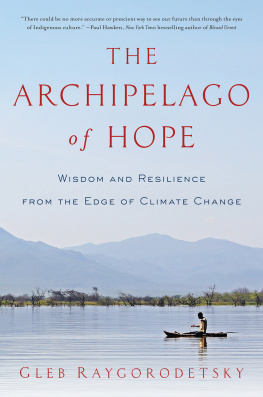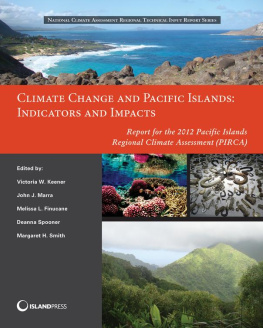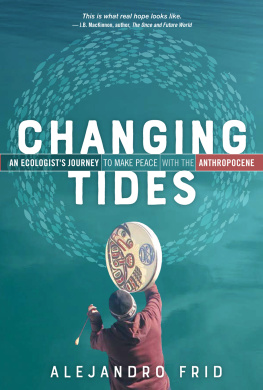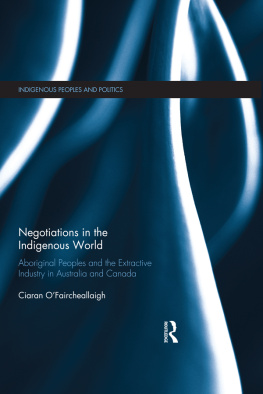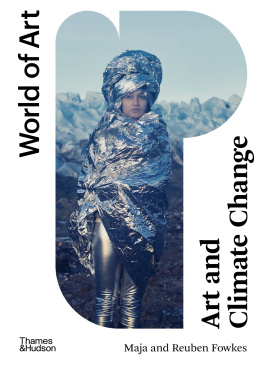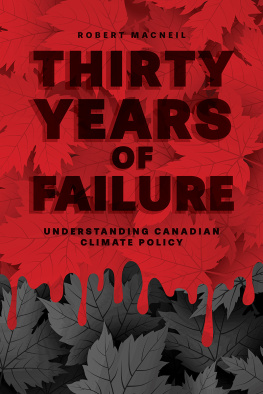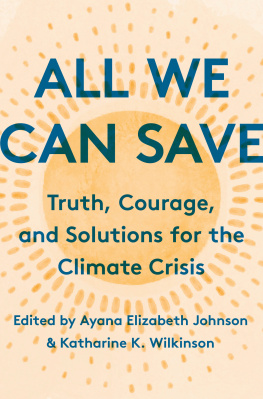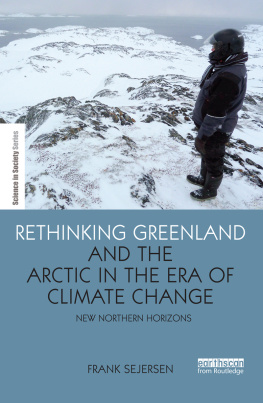
ADVANCE PRAISE FOR
THE ARCHIPELAGO OF HOPE
When Indigenous Peoples meet one another for the first time its as if weve always known each other. Glebs powerful and knowledgeable book captures that essence and the intimate ties we have to our Mother Earth. This book is like reading my own ancestry. We say that all things are connected and these stories show us how related we all are.
Patricia Cochrane, Inupiat Eskimo, Executive Director Alaska Native Science Commission
Indigenous people around the world are the only ones with a track record of living in relative balance with their surroundings for thousands of years. There was never a more important time in human history for their perspective and wisdom. The Archipelago of Hope is extremely timely and informative as we confront the reality that the growth imperative of the technologically-driven global economy must be abandoned as we embrace the health of Mother Nature as the source of our survival and health.
David Suzuki, winner of the UNESCO Kalinga Prize for Science and the United Nations Environmental Medal
There could be no more accurate or prescient way to see our climatic future than through the eyes of Indigenous people, whose survival depends on the intimacy with which they interact with living systems. In Archipelago , longtime inhabitants of earth give us their eyes and ears, and we, who can be dumbfounded by an overwhelming onslaught of information, find a precious wisdom that is bestowed to those who patiently abide in the life of the world.
Paul Hawken, New York Times bestselling author of Blessed Unrest
Exciting and hugely important. Raygorodetsky listens to the voices of those who are so often unheard and overlooked: the worlds indigenous peoples. These people are also in possession of deep knowledge that will be needed for us to heal ourselves and the planet. Archipelago of Hope will be an important resource in the tumultuous years ahead.
Scott Wallace, New York Times bestselling author of The Unconquered: In Search of the Amazons Last Uncontacted Tribes, National Geographic contributor
Archipelago of Hope is at once a clarion call for action and an inspirational compendium of steps that indigenous peoples around the world are taking to address the worlds changing climate. We have much to learn from the peoples whom Gleb Raygorodetsky has met and his elegant, evocative writing will immerse the reader in the places and experiences of those peoples.
Eleanor Sterling, American Museum of Natural History
The Archipelago of Hope shares important stories and sophisticated biocultural strategies. I highly recommend this inspiring book, with warm, loving photographs and many other resources, to lead us to a better appreciation of the rich biocultural diversity of our shared world, and a more inclusive and humble approach to stewarding it through these times and into the future.
Dr. Rajindra K. Puri, University of Kent
This finite blue-green planet creaks under growing pressure. Solutions must come from within: we will all need to find ways of living with a light touch on the planet, and yet at the same time, bring well-being and contentment. This fine book develops a much-needed narrative of hope. We should listen and learn.
Dr. Jules Pretty, OBE, University of Essex
Although scattered throughout the world in oceans of change and conventional development, indigenous cultures are indeed islands of hopefor their historical roots, for their intimate connection with the land, for their wisdom, and for their resilience. It is precisely this resilience which should be cause for reflection, learning, empathy, and solidarity.
Gonzalo Oveido, Senior Advisor, International Union for the Conservation of Nature
Few writers, anywhere in the world, know and understand the complex relationship indigenous people have with climate as well and deeply as Gleb Raygorodetsky. I am so gratified, and they should be as well, that he has finally put his knowledge and wisdom in one concise and ever-so-readable document.
Mark Dowie, Massachusetts Institute of Technology, author of Conservation Refugees
There is no better time then now for the world to learn from this important work by Gleb Raygorodetsky as he respectfully allows the Indigenous voices, those most impacted by climate change, to shine through in his writing.
Sheila Watt Cloutier, Nobel Peace Prize nominee, author of The Right to Be Cold
THE
ARCHIPELAGO
of HOPE
WISDOM AND RESILIENCE
FROM THE EDGE OF CLIMATE CHANGE
GLEB RAYGORODETSKY

THE ARCHIPELAGO OF HOPE
Pegasus Books Ltd.
148 W 37th Street, 13th Floor
New York, NY 10018
Copyright 2017 by Gleb Raygorodetsky
All images Gleb Raygorodetsky
First Pegasus Books edition November 2017
Interior design by Maria Fernandez
All rights reserved. No part of this book may be reproduced in whole or in part without written permission from the publisher, except by reviewers who may quote brief excerpts in connection with a review in a newspaper, magazine, or electronic publication; nor may any part of this book be reproduced, stored in a retrieval system, or transmitted in any form or by any means electronic, mechanical, photocopying, recording, or other, without written permission from the publisher.
Library of Congress Cataloging-in-Publication Data is available.
ISBN: 978-1-68177-532-6
ISBN: 978-1-68177-596-8 (e-book)
Distributed by W. W. Norton & Company, Inc.
www.pegasusbooks.us
To Kobeta and Raifor giving me a chance;
To Oncafor making me a better human;
To Aidanfor teaching me the right perspective;
To the Indigenous custodians of biocultural heritagefor inspiring hope; and
To the readersfor being willing to listen.
CONTENTS

I ndigenous peoples traditional knowledge is increasingly gaining recognition, most significantly in national, regional, and global processes that are seeking solutions to the ecological crises of climate change and biodiversity erosion. Indigenous or traditional knowledge is the wisdom and know-how accumulated from the past to the present, which guide a wide array of human societies in their interaction with their environment. Until recently, the domination of Western modern science meant that traditional knowledge was labeled as primitive, superstition, and unscientific, and many traditional knowledge holders were despised and oppressed.
Fortunately, many Indigenous peoples who live and work with the environment around them persisted in using and developing their knowledge on and relationships with the ecosystem and the resources found therein. Their worldviews, values, cultures, and spirituality are intricately linked with the ways they relate to the environment, and with their past, present, and future, the living and the nonliving, and the seen and the unseen. The Indigenous peoples rituals ensure that they respectfully engage with all of these elements. In this context, it is not difficult to understand what Indigenous and traditional knowledge mean and why they value the past in order to sustain and enhance well-being. This centuries-old body of knowledge seeks to guarantee a good life for future generations.
The Convention on Biological Diversitys Article 8(j) urges governments to respect, preserve, and maintain knowledge, innovations, and practices of Indigenous peoples and local communities. A working group on Article 8(j) and related provisions has been established as a mechanism to guide its implementation. Indigenous peoples are actively engaged with this body, and this is where they share their views on how traditional knowledge can be used and how their rights to their traditional knowledge can be protected.
Next page
